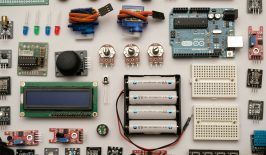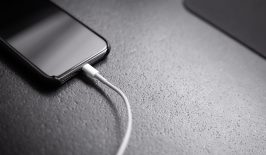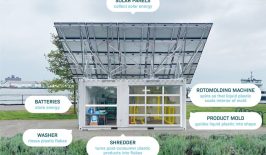What can consumers do to combat child labour in the fashion industry? The plugin aVOID filters users online shopping trips to help shoppers avoid buying clothing and goods that have been produced under exploitative conditions. We put it to the test.
What Does the Plugin Do?
Around the world, more than 73 million children are forced to work under exploitative conditions. Many of them produce the clothes that we wear on our backs. With fashion often sold via online shops, the browser plugin aVOID wants to make shopping for ethically-produced goods easier by filtering your virtual shopping tour.
The plugin is available for Safari and Chrome and was developed as part of the campaign “Aktiv gegen Kinderarbeit” (Active against Child Labour) by German organisation earthlink e.V., which looks to break child labour cycles and put kids in developing countries on the path towards getting an education.
After installing the plugin, users can begin shopping online. The plugin matches search results with producers and their ratings in earthlink’s own database.
Ratings are sorted via a traffic light system: clothing from companies that are rated with a red traffic light is replaced by the plugin with a symbol. This way, users can easily avoid products made (or potentially made) by children and consumers can join the fight against child labour.
How User-friendly Is It?
aVOID is free and downloadable from the website. After successful installation, the plugin appears as an icon in the browser toolbar. Users need to activate it before they go shopping so that when they head to one of a select group of retailers (that includes Amazon and Google Shopping) and search for certain manufacturers, any that are associated with child labour will show up as an icon instead. For example, type in American Apparel and all products from that company vanish. Users can then find out why these brands have been blotted out.
The plugin’s design is very user friendly. It is simple to use and easy to understand.
Does the Information Fit to Your Region?
The plugin works more or less on a global level and includes many regions. Unsustainable products are blocked out while all others are shown to users.
Does It Offer Suggestions on Sustainable Alternatives?
The plugin itself doesn’t recommend sustainable alternatives but it goes without saying that products and brands that aren’t blocked out are put forward as sustainable alternatives by default.
Is the Content Up-to-date?
aVOID is based on information collected in one of Aktiv gegen Kinderarbeit’s databases. Currently, the database contains 280 clothing company entries. aVOID rating criteria include: – a company’s policy against child labour; – checks undertaken at the production facility; – accusations relating to child labour. If the manufacturer received a red traffic light in all three categories, it means that the company does not have a code of ethics nor has it spoken out against child labour. They don’t carry out checks, they don’t make data available or they have been accused of using child labour and haven’t denied it. You can find a complete list of companies here (the page is in German but the traffic light system makes it easy to see who’s doing what with regards to child labour).
The ratings criteria are logical and thoroughly explained. If a user comes across a manufacturer with a red traffic light, they can get informed about why exactly that company has received that rating. aVOID provides ample food for thought about purchasing unsustainable goods from various manufacturers. Of course, people can also dive deeper into the topic and explore other sources of information in order to get a full picture about certain companies’ practices. All in all, the content on aVOID is presented as believable.
Is Their Advice Trustworthy?
According to the website, whenever a company is suspected of engaging in child labour, contact with the company in question is made and research is undertaken to find out if this is true. The criteria and information are easy to understand and are trustworthy. Of course, complete validity of information can never be guaranteed all the time
In the time you used it, did it update often? The plugin is updated by employees and volunteers. Right now, the database contains entries on 521 companies from sectors like clothing, food, cosmetics and more. The plugin works in a many big online retailers and more are to be added to the list. There are currently two million products that aVOID replaces with an icon.
Conclusion
Dodging goods made using child labour is naturally not guaranteed 100 per cent of the time but using the plugin is nonetheless a good starting point. Additionally, users can demonstrate to fashion companies that they wish to purchase sustainable, ethical products. aVOID shows that simple methods can help all of us get active against the negative impacts of a globalised world. A few simple mouse clicks won’t abolish child labour however, such applications can change people’s awareness and broaden their knowledge of sustainability.
Would You Recommend the Plugin?
I would recommend this plugin. It’s free, easy to use and highly effective. Once it’s installed, no additional effort is required on the part of the user.
The plugin can be downloaded here and you can find out more about the campaign behind aVOID via this video.
Alternatives?
If you want to shop fair when you’re offline, you could give the iOS app Fair Fashion? from the Clean Clothes Campaign a go. The platform Rank a Brand also has helpful information about conscious consumption, rating and evaluating a brand’s sustainability according to a set of criteria. Another suggestion is FairBuy where you can get engaged in fair wages in the fashion industry. Last but not least. there is a plethora of info right here on RESET about green fashion and fair shopping.
This article is part of our RESET Special on sustainable consumption. You can find all the articles in the series here.








